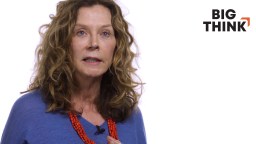MELANIE KATZMAN: We often work to the point of exhaustion depleting ourselves, resources, taking up time that people don't have in the quest for this elusive perfect. The reality is that in most instances good enough is good enough. Research shows us that people who are satisfiers tend to be happier and just as effective as people who are maximizers. Maximizers are the people who are always looking for the absolute ultimate perfect solution. But it's not necessarily the best for the individuals or for the organization. I've also seen that groups will continue to work on something long beyond the point in which they're completed. Sometimes because they want it to be perfect. Other times they're just enjoying one another's company. We fall into a certain rhythm. Working on what we know is often easier than what we don't know. It takes courage to say completed. So I coach people to have the courage to say we're done. You can always recontract about the next set of goals, but scope creep is really debilitating for the individual who's delivering the work and sometimes for the person who's receiving it because they're waiting and you're taking longer in an effort to get something to a level of perfection that isn't needed.
Oftentimes in an effort to assert our value within an organization we seek to be more complicated than is necessary. The most beautiful answer is often the simplest, the clearest, the most parsimonious. But in an effort to demonstrate that we are expert, that we have knowledge, that we are in tune with the jargon we could create complex plans, flowcharts, PowerPoints that are not only exhausting to create but are exhausting for the audience to receive them. So I always encourage people to just stop for a minute and ask: am I asking the clearest, simplest question? Can other people tell you what the goal is in one sentence? If the group you're working with doesn't know where you're heading then you've got a problem. So can you put it onto one piece of paper, one sentence. That's a good sign.
People will sometimes hold back their work and refine it and refine it because they're not really sure what it is that they're meant to do. So take the time, clarify what the expectations are, don't get lost in your own thoughts, check it out with people and, if necessary, actually have a midpoint check-in and say am I on the right path. Is this the kind of information you need. Is this the quality and depth of work that is expected. And then you can make the adjustments. Don't wait until the last minute when you're right before the deadline to see whether or not it's good enough or perfect enough





